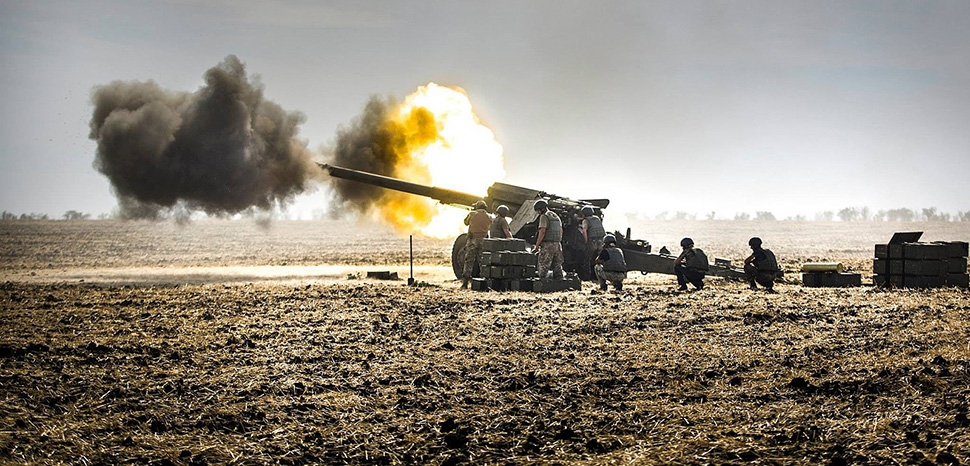One year on, the revanchist war that Russian President Vladimir Putin began in Ukraine last February 24 has degenerated into a protracted struggle of epic proportions with no end in sight.
Universally regarded as the deadliest armed conflict in Europe since World War II, it has claimed the lives of tens of thousands of Russian and Ukrainian soldiers in scores of pitched battles in eastern and southern Ukraine, which Russia invaded last winter after massing troops and military equipment on the border.
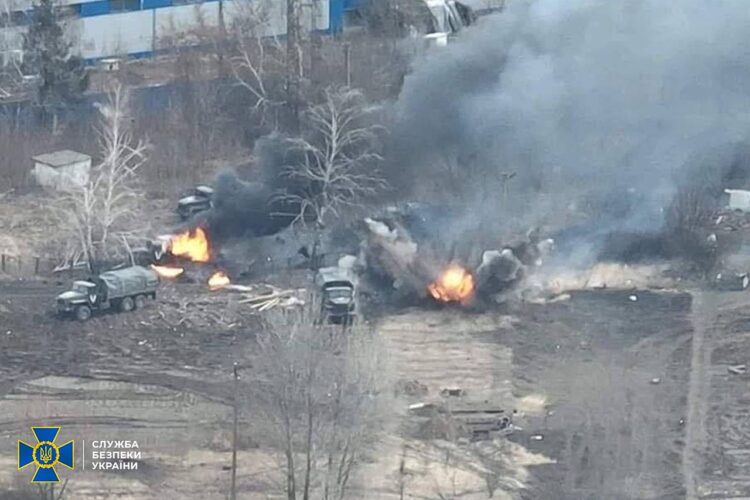
The high-intensity war, which has claimed the lives of thousands of Ukrainian civilians and displaced millions more, has morphed into an increasingly bloody stalemate despite Ukraine’s incremental success in reclaiming more than half of the territory in the Donbas region captured by the Russians. In recent days, Russia seems to have launched a fresh offensive. Ukraine is preparing a counter-offensive to be launched in the spring.
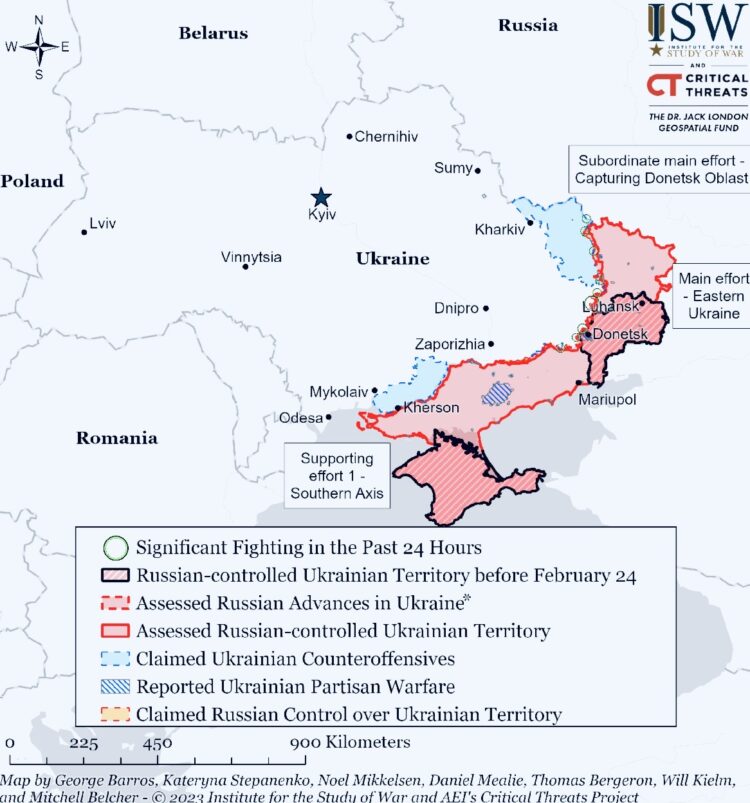
The ripple effects of Putin’s war of choice have been devastating.
It has upended the post-1945 international order, spawned a new Cold War, brought Russia and China closer together in an illiberal alliance, and prompted Russia’s neighbors, Finland and Sweden, to apply for NATO membership.
In addition, this meat grinder of a war, which is eerily reminiscent of the trench warfare of World War I, has significantly disrupted global supply chains, drastically driven up the price of food, oil and gas, and contributed to the current cycle of hyper inflation.
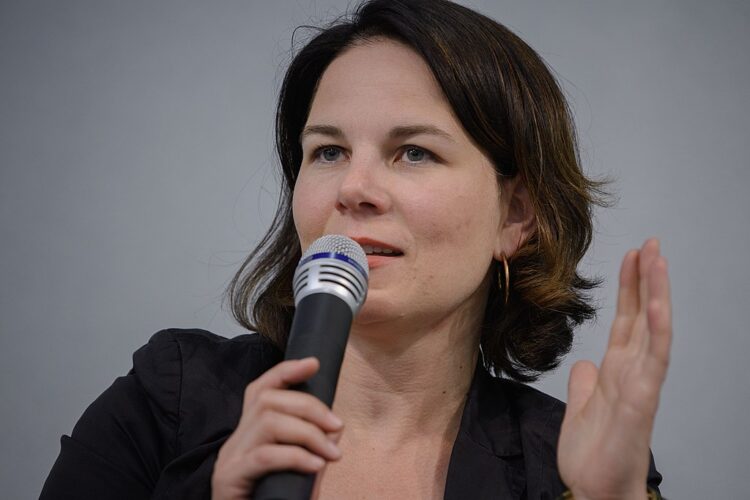
For all intents and purposes, it has morphed into a proxy war, as Germany’s foreign minister, Annalena Baerbock, suggested when she stated that the NATO military alliance is “fighting a war against Russia.” Last year, in an unguarded moment, U.S. Secretary of Defence Lloyd Austin acknowledged that Washington’s objective was to “weaken” its Russian adversary, a point that Putin has underscored to justify the invasion.
Russia’s chief rival, the United States, has rallied behind Ukraine, providing it with about $50 billion worth of security, economic and humanitarian assistance. Washington’s allies, ranging from Britain and France to Canada and Poland, have materially supported this effort.
The West, spearheaded by the United States, has supplied or promised to provide Ukraine with ammunition and sophisticated weaponry from long-range missiles and artillery to armored personnel carriers and tanks. It has yet to send modern fighter jets to Ukraine, but Poland, Holland, Britain and France have not ruled out this option.
Such is the pro-Ukrainian position of the European Union that its foreign policy chief, Josep Borrell, has urged Western powers to speed up the delivery of weaponry to Ukraine.
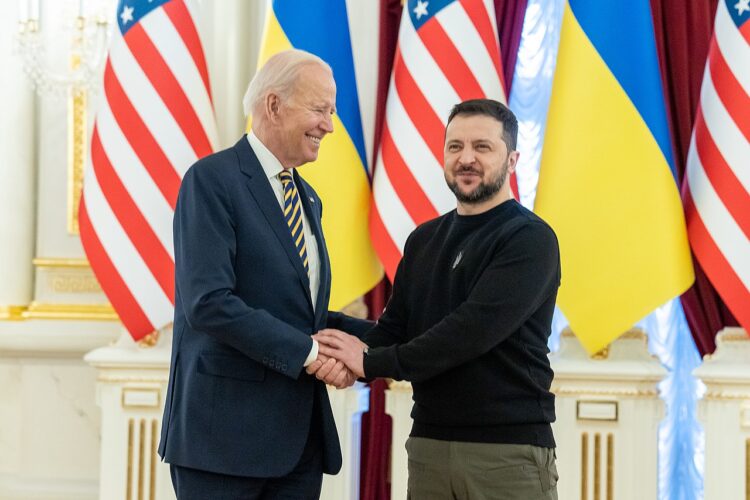
On a surprise visit to Kyiv on February 20, his first since the outbreak of the war, U.S. President Joe Biden pledged long-term support for Ukraine. “Freedom is priceless,” he declared in the presence of Ukrainian President Volodymyr Zelensky. “It’s worth fighting for for as long as it takes. And that’s how long we’re going to be with you, Mr. President, for as long as it takes.”
During his whirlwind trip, Biden announced the release of $500 million more in military aid to Ukraine, though he made no mention of supplying it with aircraft.
The following day, true to form, Putin falsely blamed the West for the war. “It’s they who have started the war. And we are using force to end it.” He added, “We aren’t fighting the Ukrainian people. The Ukrainian people have become hostages of the Kyiv regime and its Western masters, which have effectively occupied the country.”
In a hubristic but ominous note, he declared that Russia cannot be defeated on the battlefield.
Speaking to a select audience of politicians, government officials and soldiers who have fought in Ukraine, Putin claimed that the West is trying to destroy Russian culture, religion and values.
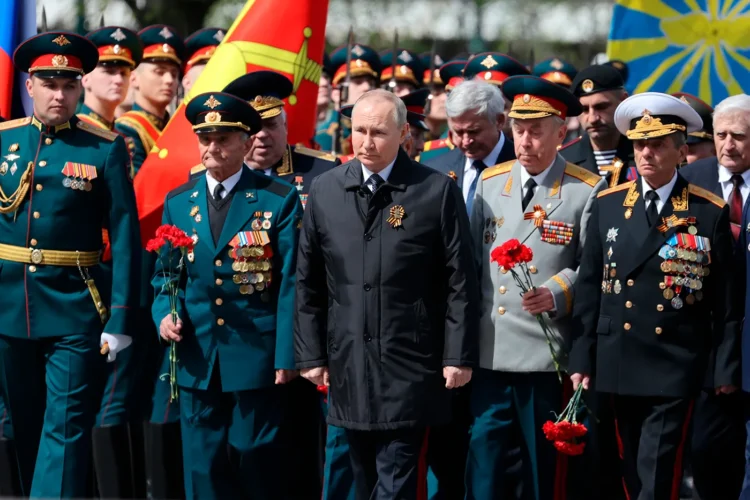
Putin’s skewed interpretation and understanding of events has been consistent. On day one of the invasion, he euphemistically described it as a “special military operation” and bizarrely claimed its twin objectives were to “demilitarize” and “denazify” Ukraine.
These are astonishing and outrageous claims, given the fact that Ukraine’s president is Jewish and that some of his relatives were murdered during the Holocaust.
Most recently, during Holocaust Remembrance Day on January 27, Putin twisted reality yet again to justify the folly of his invasion, a flagrant violation of international law and of the United Nations charter.
“Forgetting the lessons of history leads to the repetition of terrible tragedies,” he said. In a reference to the ethnic Russian minority in Donetsk and Luhansk, he noted, “This is evidenced by the crimes against civilians, ethnic cleansing and punitive actions organized by neo-Nazis in Ukraine. It is against that evil that our soldiers are bravely fighting for.”
At other times, he has justified the invasion on the grounds of preventing Ukraine from attaining NATO membership and keeping it within Russia’s “sphere of influence.”
In retrospect, Putin laid the foundation for his aggression with a lengthy, self-serving and chilling essay in the summer of 2021 in which he sharply questioned Ukraine’s legitimacy as a nation and expressed regret and anguish that his predecessor, Boris Yeltsin, had allowed Ukraine to slip from Russia’s orbit and proclaim independence in 1991.
Comparing himself to Peter the Great, a leader who greatly expanded Russia’s frontiers, Putin implied that his quest to reconquer Russian “historical lands” was perfectly legitimate.
It is clear that Putin seeks to restore the imperial Russian empire, though Russia has legitimate strategic concerns and interests outside of this objective.
Lest it be forgotten, Putin’s imperialist impulses led him to invade Georgia in 2008 and Donetsk, Luhansk and Crimea (which the Soviet Union gifted to Ukraine in 1954) in 2014. Having encountered no real resistance from the West either in 2008 or 2014, Putin incorrectly assumed that his invasion of Ukraine would be tacitly accepted by the West.
And he erred egregiously in assuming that Ukraine could be subdued and conquered within days. Russian armored formations en route to Kyiv were routed in February and March, and last summer, Ukraine recaptured Kharkiv and Kherson, thanks in no small part to superior Ukrainian tactics and strategy, vital U.S. intelligence, the infusion of Western state-of-the-art defensive arms into Ukraine, and mediocre Russian generalship.
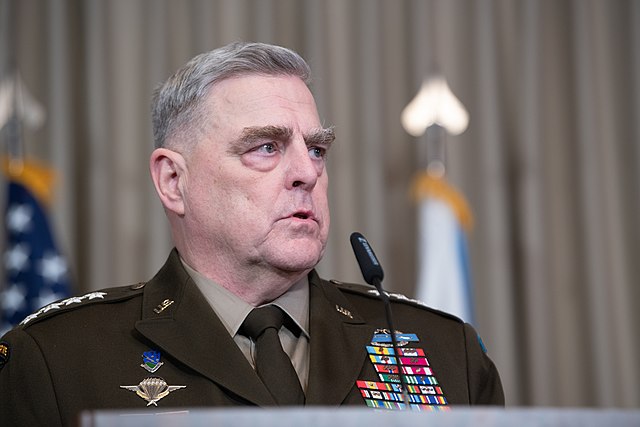
In light of Ukraine’s success in repulsing Russia, the chairman of the U.S. Joint Chiefs, General Mark Milley, has claimed that Russia’s invasion has been a failure. As he put it, “Russia is now a global pariah, and the world remains inspired by Ukrainian bravery and resilience. In short, Russia has lost … strategically, operationally and tactically.”
Milley may well be engaging in hyperbole or wishful thinking because this war is far from finished. Putin is ready to sustain horrendous casualties and is determined to prevail at all costs. It would appear that the majority of Russians agree with his pretexts for invading a non-threatening neighbor.
Having failed to drive Ukraine into submission, the Russians have repeatedly bombed critical infrastructure in Kyiv and other cities to inflict suffering on ordinary Ukrainians. But to date, they have held firm and exhibited resilience. If anything, this war has united the majority of Ukrainians in their hatred of Russia.
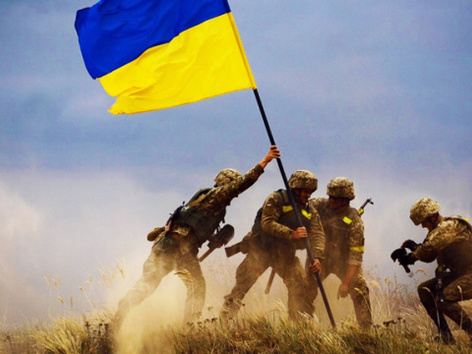
Russia, having apparently run short of missiles, has availed itself of Iranian Shahed drones to inflict death and destruction on Ukraine. In doing so, Russia has committed a long list of war crimes to which the Russian leadership will have to be held accountable.
With the war dragging on, Zelensky has warned allies to guard against “fatigue.” Putin projects confidence that he can outlast his enemies in a war of attrition that only Russia, with its vast resources and deep pools of manpower, can ultimately win.
The sanctions the West imposed on Russia have worked only to a limited degree due to record oil revenues of about $325 billion in 2022. Countries such as China, India, Turkey, Brazil and South Africa have ignored the sanctions and purchased Russian petroleum and gas in business-as-usual dealings. Russia’s Central Bank has succeeded in stabilizing the plummeting ruble by raising interest rates, and today it is stronger against the dollar than before the invasion.
As the war enters its second year, the big unanswered question is whether Western resolve to prop up Ukraine will endure. Another question to consider is whether China will risk its valuable mercantile relationship with the West and funnel lethal weaponry to Russia. China, so far, has supported Russia on the political and economic fronts, but has yet to decide whether to ship weapons to Moscow.
Some influential Republicans in the United States, notably House Speaker Kevin McCarthy, have criticized the scale of aid to Ukraine.
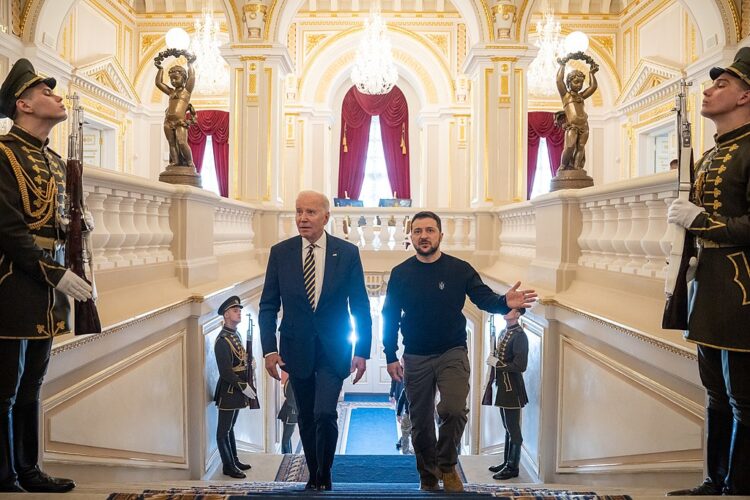
The Biden administration, however, shows no signs of cracking. Speaking in Warsaw on February 21, Biden blamed Russia for the war, which he called a test of democracies to stand up to authoritarian regimes. “Our support for Ukraine will not waver, NATO will not be divided, and we will not tire,” he said. “President Putin’s craven lust for land and power will fail.”
Russia, which currently holds 17 percent of Ukrainian territory, has proclaimed it is ready for peace talks with Ukraine, but only on its own narrow terms. What this means in practice is abundantly clear. Putin is unwilling to cede the occupied territories in eastern and southern Ukraine, much less Crimea, which he views as intrinsic parts of Russia.
“Clearly, Putin has no interest in diplomacy right now,” U.S. Secretary of State Antony Blinken said several days ago. “The best way to hasten prospects for diplomacy is to keep tilting the battlefield in Ukraine’s favor. This will ensure that Ukraine has the strongest possible hand to play at a negotiating table when one emerges.”
Blinken is right, but years may elapse before both sides are really prepared to lay down their arms and negotiate in good faith. In the meantime, the war grinds on and remains a blight on Europe’s geopolitical landscape and a drain on Western finances.
